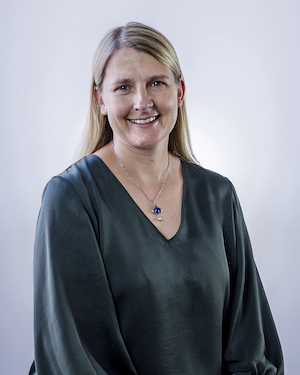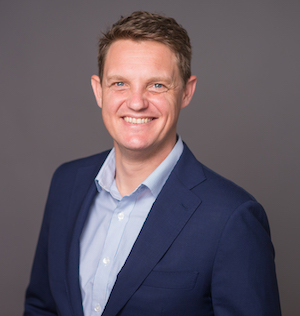Looking for more information about World Mental Health Day in Australia, I came across a website called “Look after your mental health, Australia,” which explains “Mental ill health is a growing problem in Australia – one that has been made worse by the COVID -19 pandemic. Looking after your mental health and well-being, and knowing how to support others, has never been more important.
“Good mental health is when we can cope with the stressors of our daily lives, participate in loving relationships, contribute to our community, and work towards our goals. Everyone has mental health. And we can all benefit from looking after our own mental health and the mental health of our communities.”
An important initiative for mental health and wellness in the cybersecurity community has arisen through Cybermindz.org, Australia’s first peer-led, not-for-profit, cybersecurity mental health intervention and support program, founded by Peter Coroneos.
Cybermindz is attending AISA’s CyberCon in Melbourne this week, which you can read about here.
iTWire also received some commentary from the tech industry on World Mental Health Day which is below, so please read on!
|
|
1) First up is Jamie MacLennan – Senior Vice-President and Managing Director, Asia-Pacific at LifeWorks who said:

“According to the LifeWorks Mental Health Index, the mental health of Australians remains severely strained two and a half years since the start of the pandemic – meaning that society and business need to address mental health issues.
“A positive outcome of the pandemic has been heightened awareness of mental health. For working Australians, half feel the need for mental health support, and over one-third want to focus on their mental health.
“Unfortunately, stigma remains an issue. A different cultural approach to mental health is critical as most workers believe that talking about mental health issues will harm their careers. As a result, 30% of workers do not feel comfortable talking about mental health with their managers.
“However, where companies and managers support mental health issues, they are making a positive impact. Nearly half of working Australians feel that their mental well-being was supported by their employer during the pandemic and this group has the most favorable mental health score.
“The support provided was identified as offering days off to take care of mental health, providing work flexibility, and promoting services and resources for mental health – providing easier access to counselling, coaching or medical support.
“A number of Australian businesses increasingly rely on partnerships with specialized platforms, such as LifeWorks, to help them proactively identify and manage well-being.
“These actions are not only welcomed by employees, they are becoming increasingly demanded. As such, businesses supporting mental health will not only enjoy improved engagement and productivity, they will also benefit from talent retention,” MacLennan concluded.
2) Second is Lisa Virgo, Chief People Officer at Tic:Toc who said:

“With technology at the forefront of modern business thinking, it is easy to make the mistake of prioritizing innovation over the people behind it. But 100% digital does not mean 100% robot; people are the drivers of technology and their mental wellness is of utmost importance.
“Ensuring the mental health and well-being of your people is a continued responsibility every company needs to take responsibility for. It is not built by promises that get left at the door following the recruitment process, nor is it formed with tokenistic gestures that are not followed through by company culture or policies.
“At Tic:Toc, our values are deeply embedded in the business and the decisions we make – when a clear direction is set for people to navigate and be successful, it creates a level of transparency, connectivity and community.
“We wholeheartedly believe in Tic:Toc’s founding values, two of which, ‘time to be human’ and ‘time to build good bonds’, encourages our employees to bring their whole selves into the office and take time to foster connections both internally and externally. Not only do we see these as a great strength towards the success of the business, but it has a defined and enduring impact on the mental wellness of our employees.
“As people are fundamentally rethinking their careers, now more than ever, they want to feel valued and supported in their processional loves. Our people have access to 24/7 support and Employee Assistance Program (EAP) via Bendigo and Adelaide Bank. We offer flexible working arrangements, extra loyalty leave that aligns with our purpose to create time that matters most, and also make time to connect and celebrate every success and learn from failures together.
“We often talk about the first 100 employees being responsible for hiring the next 100 – and it being up to us to create a workplace we are proud of, that people want to join and are actively involved in contributing towards the company’s success.
“And we have seen these being wholeheartedly welcomed by our staff with 93% of our employees saying it is a great place to work compared to 56% of employees at a typical Australia-based company.
“Ultimately, we are only as good as our people, so putting them at the heart of the business strategy is crucial – and this is by taking care of them. When customers can see and feel that an organization’s purpose is baked into its operating system, culture and values, they know it is authentic,” Virgo concluded.
3. Third is Andy Brockhoff, President, APAC at Unit4 who said:

“Business success is synonymous with agility and innovation but the driving force that eclipses all others is people. Making sure your people are healthy, productive and still feel part of the team has never been more important. However, making them feel valued goes beyond ticking the box of a tight knit culture.
“Encouraging purposeful working and happy people that prioritizes work/life balance, well-being and mental health must come from the top to the bottom. This means authentic leadership – via transparency, visibility, regular communication, really listening to what your people have to say and involving them in decision making.
“At Unit4, we have rolled out our own Talent Management platform which lets us conduct anonymous weekly pulse surveys. Call it a form of check-in with the teams, to understand collectively how our people are really feeling, their workload and areas they require support. This is a regular cadence and truly holds us accountable if we are not ‘walking the talk’ on any feedback. The anonymity of the survey means that our people can be candid when providing feedback, allowing us to make changes and implement policies that people genuinely want.
“We are also putting in place a quarterly company-wide day off where each and every one of our employees are encouraged to switch off from work and do what makes them happy.
“Mental health and well-being is constantly evolving. Businesses that help their employees strive for real purpose in their work will attract new talent with the same vision and values,” Brockhoff concluded.
4) Finally, fourth is David Nemes, Regional Director APAC at Templafy who said:

“What actions companies are taking to help employees with mental wellness?
“After two years of lockdowns, working from home and living with tremendous uncertainty, it’s more important than ever for businesses to make sure that they prioritize the mental health of their employees.
“As we all return back to the office, employers must look for ways they can provide a positive workplace experience to employees across all levels. Companies have a huge opportunity to play a part in highlighting the importance of mental health, destigmatizing it and showing that like any other health issue it should be treated with appropriate care.
“It has been fantastic to see companies taking mental health more seriously now and ensuring they do more to look after the well-being of their employees. One action to do this is hosting monthly or quarterly days for employees to recharge or do whatever they want to be able to perform at their peak. There has also been a rise in Employee Resource Groups (ERGs) and offering Employee Assistance Programs (EAPs). An ERG is a voluntary, employee-led group whose aim is to foster a diverse, inclusive workplace aligned with the organization they serve.
“An EAP is a work-based intervention program designed to enhance the emotional, mental and general psychological well-being of all employees and includes services for immediate family members. The aim is to provide preventive and proactive interventions for the early detection, identification and/or resolution of both work and personal problems that may adversely affect performance and well-being, access to mindfulness apps such as Headspace or Calm which have business subscriptions, access or discounts for other health related resources, eg gyms, nutrition.
“How are they finding these actions are being welcomed by employees?
“I think all of these benefits are greatly appreciated. It’s important for businesses to cultivate an environment where employees feel like their mental health is important and valued by their employer. By showing this support, employees are more likely to reach out for help should they require it.
“Companies that don’t just pay lip service to the well-being and development of their employees but are going above and beyond and really investing in their employees are the ones that are building strong, vibrant cultures and are able to attract the best talent.
“How are these actions helping with talent retention?
“Companies that show that they truly value and care about their employees, their development and their well-being are the ones that are able to attract and retain top talent. It’s not just about spending (although that helps) but actually living up to the values that they profess. These employees then become the best talent brand ambassadors who will make genuine referrals to other people and rave about the company and culture. In a tight labor market, these kinds of referrals are incredibly valuable,” Nemes concluded.
.